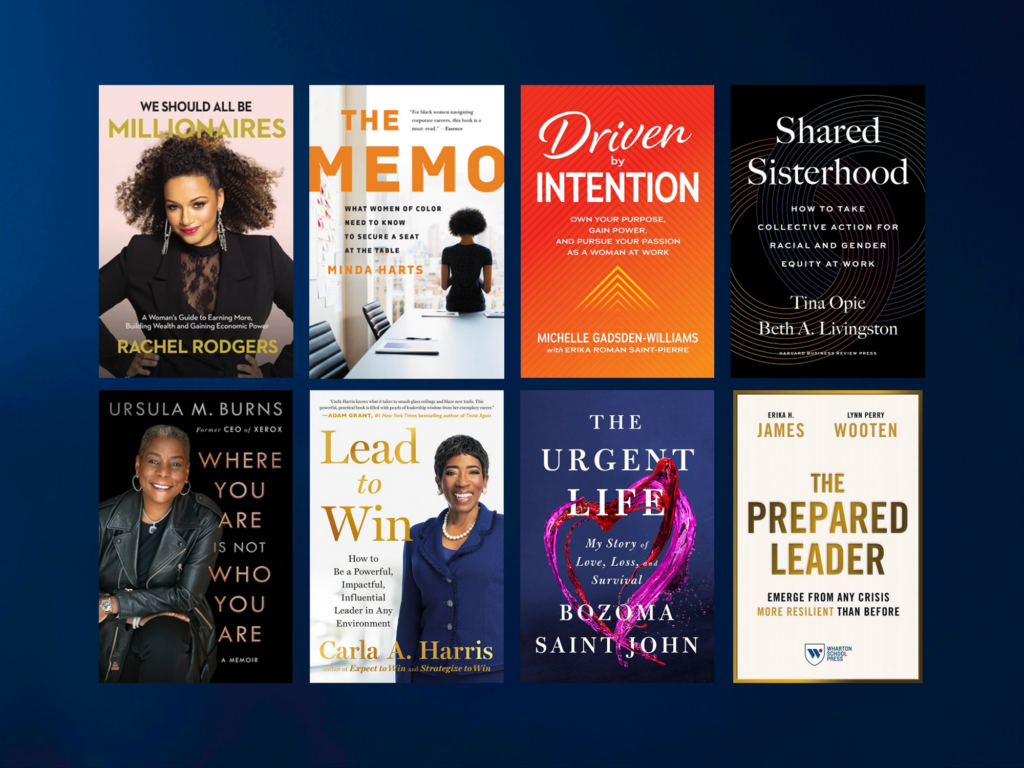The future of AI and the STEM path to success

Women in STEM have long had preconceptions attached to their profession. The longstanding myth that men are just inherently better at math and science than women persists despite mountains of disputing data. For the record, research shows no cognitive biological difference between men and women in math capabilities, and some researchers have called this one of the most self-destructive misconceptions in America today.
Sidney Madison Prescott – former global head of intelligent automation at Spotify, keynote speaker, author, and robotics evangelist specializing in the creation of Robotic Process Automation Centers of Excellence for Fortune 250 companies – is committed to changing the false narrative surrounding women in STEM.
She’s also working to shift the way other industry professionals view emerging technologies.
A fan of continued learning and innovation, beyond her role as the Former Global Head of Intelligent Automation at Spotify, she is fascinated by the ever-developing world of artificial intelligence (AI) and has ambitious academic achievements to boot.
In 2021 she completed her Executive Women’s MBA (EWMBA) at Brenau University and as a part of the inaugural cohort, she is one of the first individuals in the country to receive an EWMBA degree (P.S… she is also an MBAchic Fellow!). She was accepted into Cornell Law School and started coursework toward her Master of Science in Legal Studies in January of 2022.
As a fashion enthusiast who regularly enjoys fabulous New York nightlife like Fashion Week, Vogue Magazine events, and making casual guest appearances on everyone’s favorite guilty pleasure: Watch What Happens Live with Andy Cohen, she shatters the misconception that women in STEM are one-dimensional, and challenges anyone she meets to reimagine the future of the way we work.
MBAchic caught up with Sidney to learn why she says right now is an incredible time for any professional to pivot into the tech field, what businesses need to know about the digital revolution in order to succeed and boost team creativity, why it’s time to embrace (not resist) the integration of robots, and how even the least computer savvy among us can learn to code in a week or less.
Check out our full conversation below to learn more about these key takeaways:
- Exciting RPA/AI/ML technologies to look for
- Human augmentation and the future of work
- Learning how to code without a tech background
- The value of upskill training programs at Spotify and beyond
- Future STEM roles for women to watch
[Editor’s Note: this interview was recorded during Sidney’s tenure as Global Head of Intelligent Automation at Spotify.]
Read the full interview transcription below:
MBAchic (02:25):
I know that you weren’t originally planning a career in tech, you fell in love with the field through an internship opportunity, which is a really cool trajectory, um, for you personally. But for people out there who maybe do not have a tech background, maybe their MBA professionals are pursuing their MBAs, but they don’t have a tech background at all. Can you explain why it’s never too late to make that pivot? And what kind of roles do you anticipate for women to dive into in the next five, 10 years?
Sidney Madison Prescott (02:53):
Absolutely. So there are two major, I would say, factors that are currently really stirring up the industry. One is digital transformation as a whole, and that is really looking across any industry, any enterprise, and looking at the potential to optimize processes. And typically this is through a combination of Lean six Sigma, uh, just process optimization, different, I’ll say methodologies, but also leaning very heavily on automation. And that’s going to be more of your emerging technology. So your robotic process automation, machine learning, artificial intelligence, even the metaverse, right? So we’re hearing about a lot of different things that are going on in the metaverse. All of these different facets of automation are really interesting for women who may not be in technology because they are all emerging tool sets and emerging methodologies. So it really enables someone as these different tools are maturing to dive in and start to actually build your knowledge at the same time that the tool itself and the methodologies connected to that tool are maturing as well. So it’s a perfect synergy of growing in a field where there are not very many, I’ll say individuals that are skilled within that area, and that you can then better position yourself to stand out in the long run as someone who has, you know, whether it’s ML skills, whether it’s rpa, whether it is a full enterprise end to end digital transformation, you become one of the few that are in that field with the expertise that senior leaders and individuals in the C-suite are looking for.
MBAchic (05:29):
You are very passionate about robotic process automation or rpa, which you believe is a driver for women to enter into this STEM field. And something that’s interesting about your own trajectory is that you weren’t originally heading into tech, you fell in love through an internship and found yourself in this incredible opportunity for growth. I know that’s something that you’re passionate about for other women. So if you’re a professional woman, maybe you’re pursuing your MBA, but you have no background in tech. Can you speak to pivoting into tech and the rules you anticipate women really carving out for themselves in the next few years?
Sidney Madison Prescott (06:07):
Absolutely. So I think what’s great about technology today is there are so many emerging technologies, and these are the areas that I feel very passionately that women can make headway in. And if you’re looking for a pivot in your career where you like to start focusing on technology, I would say this is the perfect time to do that. So within the industry itself, there are two very big themes that are running across, I’d say pretty much any organization. One is digital transformation, the other is automation at scale. And so within digital transformation, we have a lot of different companies and industries as well that are looking at how do they meet the needs of the future consumer, how do they make sure that their products are top notch and that they’re meeting the demand of the global environment.
(07:02)
And so within that, a lot of effort is also being put into how do these companies ensure that as they start to scale, and as they start to look at the future, that they are also optimizing their operational costs and efficiencies. And typically that’s through automation. So that’s everything from robotic process automation, as you mentioned. It’s also machine learning, artificial intelligence, chat bots. So really diving into, I’ll say the more emerging technologies, the metaverse as well. And the big, great piece here is all of the tools that I just mentioned, the field is still relatively new. There are still a lot of opportunities, one, to build your skill set. And the second piece is to stand out, you can be someone who is a student of machine learning or robotic process automation or the metaverse. So it’s a great time to build your skillset, mature your skill set, relatively at the same speed that all of these fields are also maturing as well.
MBAchic (08:11):
Thank you. I’ve heard you speak about that before in the past, and that kind of notion of being encouraged rather than intimidated by growing while these industries are taking off and developing, right? So no one is an expert, I think you’ve said that before. So it’s sort of something to find comfort in rather than saying, this is intimidating, it’s outside of my scope, it’s let’s learn, let’s make progress together.
Sidney Madison Prescott (08:35):
Absolutely. It’s a perfect storm of being able to say, I’m learning, but the entire industry is learning, right? So you can really start to hone in on what you feel your area of expertise within these new emerging fields and emerging technologies will be, and to build that acknowledgement of your skill set. But to your other point, yes, not being discouraged or feeling as if you’re entering a field where everyone else is going to be an expert. Right now, to be honest, there are very few, I’ll say experts in these fields. It is really green space to stake your claim and to become an expert yourself without feeling the pressure that you’re new to the field or you haven’t been in technology for an extended amount of time.
MBAchic (09:32):
Thank you. Thank you for that. And so you are, as we know, the global head of intelligent automation at Spotify. What are some of the exciting, RPA or AI ML technologies that you are really excited about and interested in as we wrap up 2022? I can’t believe I’m saying that and head into 2023 in a few months.
Sidney Madison Prescott (10:15):
Yes. So I’m really excited about what is it going to take to optimize the way that humans work. Even more specifically to change the way that humans work and what do we think of when we say work? How do we define that? When we think about the technologies such as artificial intelligence, machine learning, robotic process automation, we should think of these as incredible ways to augment ourselves in the work that we do within a given industry. And even further, we should think about as businesses are expanding rapidly, how do we look at that growth and optimize that growth? I’ll say from a capital perspective, without needing the operational expenditures that it would typically take. So you can look at all of these cool technologies as a way to say, we’re going to build out how much we produce, what we produce, and we’re going to do it faster, but we actually can start to limit the expenditures that we incur as a company through augmenting our human workforce with I like to call them like digital workers.
(11:30)
So what I’m excited about is having humans and digital workers work together and different workflows, that is incredible. So thinking about a human that is, let’s say, pulling some data from a system and then they pass that data off to a robot, the robot then executes some task, and then the robot passes that output back to the human and the human completes the task. That, in my mind, is fascinating. And if we can do that, even further, if we start using AI chatbots and we can communicate in a certain way with our digital workers and receive a response back, that’s what I’m really excited about. Just being able to have that incredible dance of human and robot and it becomes almost seamless. Like there’s no break between the human and robot interaction versus a human to human interaction.
MBAchic (12:31):
So very integrated, not separate, not us versus them very together, cohesive. I love that. What’s your response to someone who maybe says the digital revolution, they’re not for it, whether they’re an organization or an individual because it’s stealing jobs from people. What’s your answer to that?
Sidney Madison Prescott (13:11):
So this is a common fear that would be our first answer however, we actually see the opposite. In a lot of studies that have been done, specifically looking at employee retention and employee happiness and satisfaction pre and post automation, we actually see that employees satisfaction increases dramatically and also the retention rates drop as we start to add more efficiencies and build automations that in essence enabled the human to focus less on, I’ll say tedious kind of manual, repetitive task and more on value added task. I think at the end of the day, that is what we as business professionals are looking for, right? We want to feel that we’re adding value, we want to work on value added task, pivoting data in a spreadsheet.
(14:11)
You would rather focus on something that requires, I’ll say more kind of thought provoking really, structured thoughts. Yes. And so that’s what I would say focus on how do we augment humans with bots as a way that we can actually get ourselves out of kind of the more tedious, repetitive task so that we can focus on the more value added, kind of job duties that we have that typically we dedicate less time to, because it just takes so much time to do the manual work.
MBAchic (14:47):
I wanted to pivot a little bit. You’ve spoken a lot about the concept of human augmentation as a component of the future of work. So describe this a little bit more for us.
Sidney Madison Prescott (15:04):
Yes. So it goes very much back to I started thinking about this kind of, actually thinking about the way that humans work, the distinctions that we make between routine task that we have to commit to every single day within our role versus the task that really, as you said, spark innovation, spark ideas, spark excitement that we typically tend to spend less time on because we just have to dedicate ourselves to those manual tasks that we have to execute. And so I started thinking like, well, what about augmenting ourselves as humans in the workforce so that we can dedicate time to the more intellectual pursuits and we dedicate less time to the tedious, repetitive, sometimes boring work and that’s really where the thought process of human augmentation comes into play, which is let’s augment ourselves and it actually enables us to do more with less time.
(16:05)
It also enables us to really focus on the things that make us passionate and not make us human, right. The ability to innovate, the ability to think outside of the box, the ability to communicate with one another and to engage in such a way as to pull out these incredible ideas. Those are things that are very I’ll say human specific for now, and that we can capitalize on. And then in the interim, the things that we can do, but we prefer not to do or sometimes even just we make mistakes, right? As humans with entering data into different spreadsheets, we can augment ourselves to improve our own accuracy rates with robots, with automation. So it’s really about how do we take what we do well as humans and amplify that by using automations for the things that we don’t do so well as humans.
MBAchic (17:02):
I love that approach. I think that kind of leads into a question I had to you about training, which I know is something you’re very passionate about. I know that you’ve written about people being able to code, when they have no experience coding, which to me does sound really intimidating, but specifically at Spotify from novice to building a bot in five days, which is unbelievable. Can you talk about that upskill training process, which is so crucial and important to your process and what kind of an impact it has on your team? And then also secondarily, how other organizations can implement similar training tactics to make sure they’re up to speed for the next decade in tech?
Sidney Madison Prescott (17:49):
Yes, absolutely. So within my center of excellence, we started a citizen developer program. And in essence, it was exactly as you described. So it is a program where business users who are not traditionally IT or engineers can upskill in learning how to build very low complexity automations. And these automations are meant to actually augment the work that they do as a human. And so as we were coming up with this concept, the fundamental rationale behind building it is that we wanted to improve employee satisfaction, and we also wanted to ensure that employees would feel that as a Spotify employee, they have these opportunities to upskill in technologies and to make their lives easier at work as a result. So I was really looking at employee satisfaction as a primary driver and also being able to have processes become more efficient as a result of automation.
(18:51)
So we took that stance and we said, Okay, if we’re looking at employee satisfaction, we also need to make sure that the training doesn’t take too long. It’s not so tedious that it drives away users. So we came up with a condensed five day boot camp, and we call it the bot boot camp. And the goal was that we take individuals, we have these in person sessions, and we would actually flow through the technology. So just a baseline understanding of what is rpa, robotic process automation, what is a good use case and looking at, okay, what do you do every day within your role? And we would help the trainees choose a specific job duty that they had to execute every day and then they would use that task and they would work on that task in upskilling to build out that process.
(19:42)
And so it was really great because it was very intuitive. We built it as developers teaching business users. So we tried to keep it light on diving too deep into more complex automations and really just task level execution. It was very hands on. So during the entire teaching, each trainee was actually building. So we would teach here is your studio where you’re going to design your workflow, right here is how you would trigger an activity. And so as we are teaching that there, the students are also building and the goal was that by the end of the five day boot camp, every single trainee had basically a proof of concept or an mvp where they could then trigger that bot to run and they could showcase it to their leadership.
(20:40)
After the workshop, we would work hand in hand with that business developer to actually improve that bot. So to put in additional kind of enhancements that would make it more robust. But what we really learned out of that entire process is a couple of things. One, anyone can really truly learn how to code. There were some artificial barriers to entry that have been created in the industry that make everyone feel as if, oh, you have to have this knowledge and education and background code. I would say it depends on what you’re building and the complexity of the final project that you’re trying to achieve. The second piece that we learned is business users already have a lot of the great logic and reasoning that it takes to actually build out a process.
(21:36)
So they were using a lot of their institutional knowledge in the building of their automations. And the last piece is, having someone execute this hands on every single day, built their confidence dramatically. So by the end of the workshop, and more importantly, having a finished minimum viable product by the end of the workshop was incredible. You could see people how excited they were that they built out a workflow and they’re an accountant, or they’re not someone who is an engineer by trade and they built something they were proud of that would help them in their job and that they could also showcase to their leadership. So it was kind of mind blowing to see how much everyone enjoyed it. We’ve trained up at this point over 140 employees to do this work. So it’s been pretty incredible to see what citizen developers are building across a lot of different functions. So accounting, tax, fp&a, internal audit and then also to see the type of community that has formed at a cross-functional level as business users are developing these processes.
MBAchic (22:52):
Thank you. So do you feel that this is feasible for other organizations to, to implement similar upskilling or some form of it within their capacity? Because a lot of organizations maybe aren’t even thinking about these kind of applications, but like you said, it could improve workflow, it can inspire creativity and excitement in their communities, so it’s really important. But do you think it’s feasible? Is it not realistic? Is it something people should be investing in now?
Sidney Madison Prescott (23:22):
I believe it is definitely feasible, however, it requires an investment and a commitment. Absolutely. So coming into building out the intelligent automation center of excellence at Spotify, we had this vision of employee satisfaction being one of the grounding points of the work that we were doing so we were very intentional about how we wanted to execute different types of automation with citizen development being one type of automation. So I think that intentionality is very critical for any company that wants to dive into upskilling their employees from an automation standpoint. Also, a commitment from senior leadership in this upskilling journey is important. And then also bringing in your HR partners. So bringing them into this to showcase that this is an additional kind of feature that we have within Spotify that we can showcase to individuals that are candidates that want to join us, is that you’re, you’re going to be able to build your knowledge even as a business stakeholder in technology, and you’re going to be able to build things that are actually going to help you in your role.
(24:36)
So that really becomes quite an attractive kind of offering from, just from a candidate perspective that we can showcase as well.
MBAchic (24:59):
Can you describe how your MBA has played a role in your professional life and any advice you might have to women who are currently pursuing their MBA or in the STEM field?
Sidney Madison Prescott (25:11):
Absolutely. I had a desire to approach my MBA quite early on. I would honestly probably say in undergrad, but of course, building my career took the front seat and so I was always, oh, I don’t know when it’s gonna be the right time. So the first thing I would say is it’s never gonna be the right time especially if you’re already a working professional woman, so you have to make a commitment to yourself in terms of what does that education mean to you and how do you feel that it will empower you, embolden you as you continue on your career journey. That’s the first thing I would say. The timing is never gonna be right. So don’t let that deter you. The second piece I would say is find the personal value that you’re going to connect to the pursuit of your MBA and let that drive you.
(26:07)
For me that really helped. So I had a concept of wanting to continue my education. I started my professional career. I continued to kind of debate about whether or not I would get an MBA. And then when I joined Spotify, I really wanted to amplify the value that I could provide back to the company. And I felt very strongly that getting my MBA was the way to do that or one of the factors of doing that. So I connected to myself during my MBA journey back to the value that I was going to provide to the company and also what value was it providing back to me as a career professional so that no matter what company I go to, I have these tools at my disposal as a result of earning my MBA.
MBAchic (26:56):
So important for so many women to hear that. And before we leave you, I just need to ask, because your role at Spotify, what is on your playlist right now? What are your go-to songs? What are you listening to right now to get you in a great mood?
Sidney Madison Prescott (27:14):
So, funny enough, I am constantly on my Spotify wrapped every year. I’m constantly in the 1% of the highest Spotify users that listen to Ariana Grande <laugh>. And literally today that’s what I was listening to <laugh>. So I would say, and my rap is probably gonna say the same thing this year, but I would say Ariana Grande always just puts me in a great mood and, it’s light, it’s fun, love her as an artist. I also have recently been diving more into the new features of Spotify, so I just saw today there’s a feature where you can create playlists based on what you’re planning to wear and your clothing. So I was like, Oh, this is really cool. I had no idea we were even developing it. So it was cool to blow through it and I was like, Oh, this is gonna be great.
MBAchic (28:05):
That is so cool. And I know you’re super into fashion, so you’re probably all over that!
Sidney Madison Prescott (28:10):
<laugh>. Yes. So I was like, Oh, this is great. And it’s based on your color, what you’re planning on wearing, where you’re planning on going, it creates a playlist list for you. So I was like, that is very cool. So I’m gonna be playing around with that, which is, which is very new. Then I actually because we released audio books in the US yesterday, I was listening to a Shonda Rhimes book, Year of Yes. So those are the things I’ve been listening to. Ariana Grande, Shonda Rhymes, <laugh>.
MBAchic (28:39):
It’s a great combo. <laugh>.
Sidney Madison Prescott (28:41):
Exactly.
MBAchic (28:42):
That sounds like a really great dinner party right there.
Sidney Madison Prescott (28:44):
<laugh>. It does.
MBAchic (28:46):
So Sydney, thank you so much for your time. We know you’re extremely busy in and out of The States working on really exciting projects. We appreciate your insight to share with our team, and we hope to have future conversations with you.
Sidney Madison Prescott (28:57):
Absolutely. Thank you.








